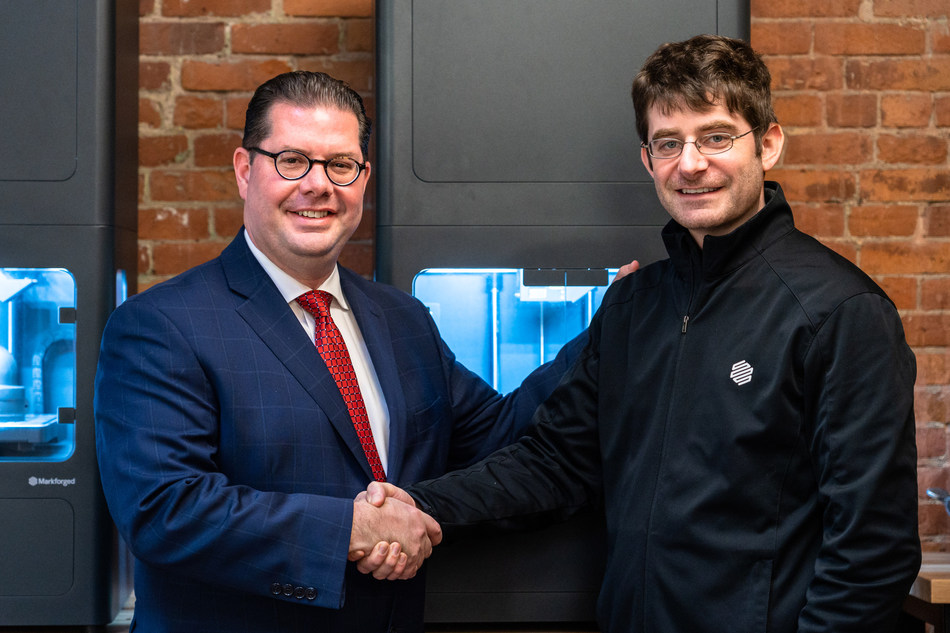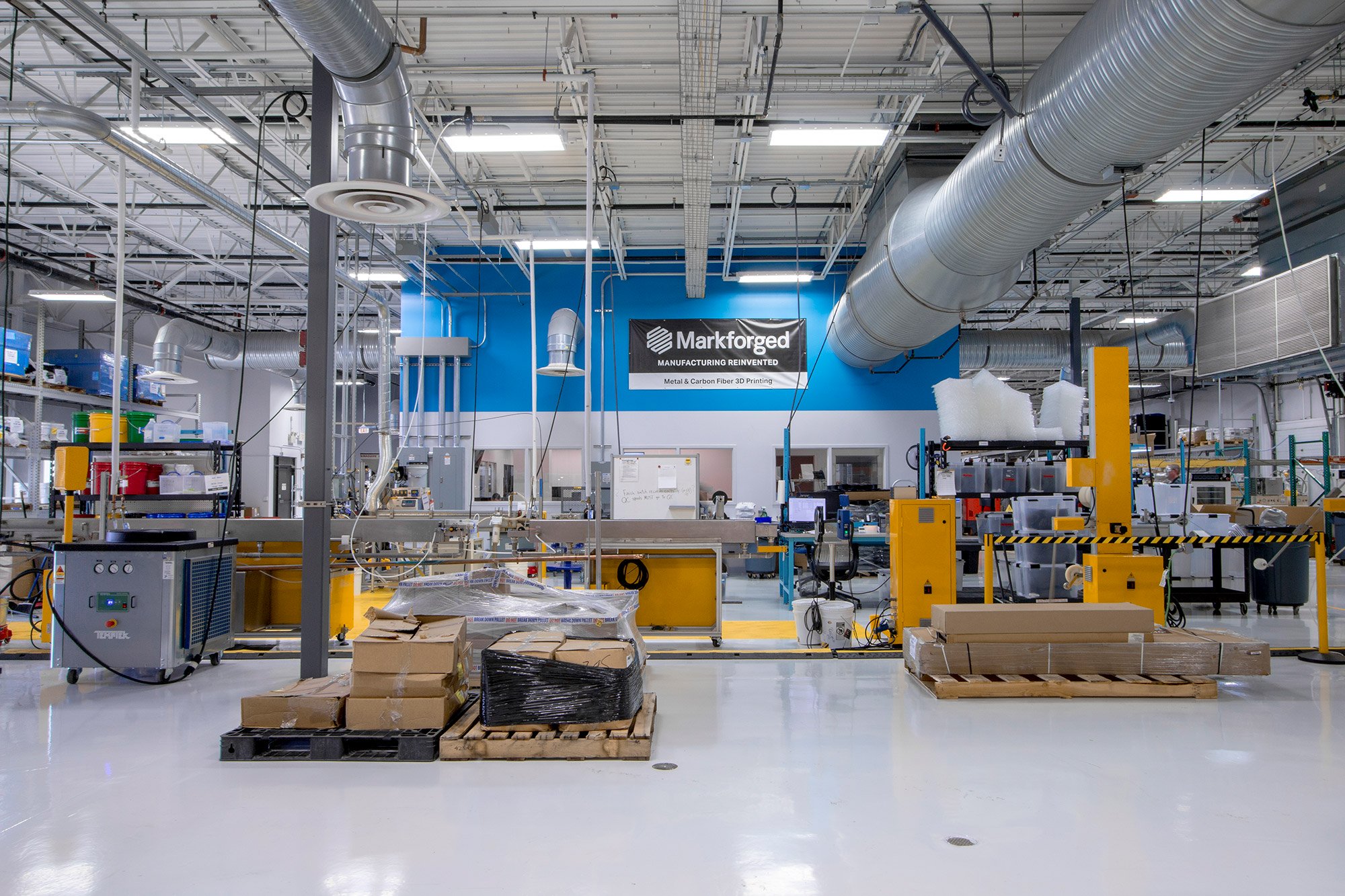Würth, the German distributor of fasteners, MRO and safety equipment, has signed a deal with Markforged, the US manufacturers of composite and metal 3D printers, to sell 3D printers to its customers in North America.
The deal will allow Würth to provide Markforged 3D printers to its customers in the general manufacturing market, as well as using the printers in its own rapid prototyping services and digital Kanban systems, designed to streamline warehouse production.
“We’re excited to expand the global reach of our solutions with Würth and continue to push the bounds of what’s possible in additive manufacturing,” said Greg Mark, CEO and founder of Markforged.
“This partnership truly opens up valuable potential for us, and for the industry. Markforged makes it easy to build anything you can imagine, and that capability will allow industrial manufacturers to lower inventory costs by printing production tools and parts – quickly and reliably.”

Mutual benefits of the 3D printing deal
The agreement with Würth reaffirms Markforged’s commitment to the general manufacturing segment, and the distribution deal represents an opportunity to expand the global reach of the firm.
Würth plans to combine Markforged 3D printing technology with its existing Kanban system for managing the replenishment of production materials. Kanban is a visual system of managing workflow created by Toyota in the 1940s to reduce waste and achieve a state of just in time production. By only producing what was required when it was time to assemble the final product, Toyota ensured maximum efficiency in the manufacturing process. Additive manufacturing offers the opportunity for companies to adopt these Kanban principles in modern settings.
The system allows its major industrial customers to secure and manage inventory according to a detailed set of information about its contents, measured using RFID tags.
“We are thrilled to bring innovative digital supply chain solutions to our customers,” said Dan Hill, CEO for Würth Industry North America (WINA).
“By integrating Markforged 3D printing technology with our existing Kanban programs, we are able to offer quicker time to market and lower inventory costs. We’re able to cut out sourcing, purchasing and transportation costs and deliver the value directly to the customer.”

Eliminating the costs of physical warehouses
Using Markforged 3D printers to produce spare parts instead of procuring specialist parts that often come with long lead times and at a higher price, will allow Würth’s customers to reduce the warehouse costs associated with holding large inventories.
Additive manufacturing has the potential to reduce inventory costs, by providing digital warehouses where manufacturers only print additional parts when required.
German 3D printing software developer 3YOURMIND introduced an extension to its Agile MES workflow software last year. Aiming to simplify production and create a cost-efficient alternative to physical warehouse storage of parts, the Digital AM Inventory allows users to store a digital inventory of 3D files to produce when needed.
Working with 3DYOURMIND, German railway company Deutsche Bahn (DB) launched a digital spare parts warehouse. Using 3DYOURMIND’s Additive Manufacturing Part Identifier (AMPI) to screen data of the railway company’s current inventory, and suggesting which parts should be ordered, they have been able to standardize the process and reduce their inventory of spare parts. This is an expansion upon the pair’s ongoing partnership as part of the Mobility Goes Additive project which commenced in 2016. It was launched in order to reduce the costs of maintaining inventory by using 3D printing to produce on-demand replacements.
You can now nominate for the 2020 3D Printing Industry Awards. Cast your vote to help decide this year’s winners.
To stay up to date with the latest 3D printing news, don’t forget to subscribe to the 3D Printing Industry newsletter or follow us on Twitter or liking our page on Facebook.
Looking for a job in the additive manufacturing industry? Visit 3D Printing Jobs for a selection of roles in the industry.
Featured image shows the Markforged X7 industrial 3D printer. Image via Markforged.



